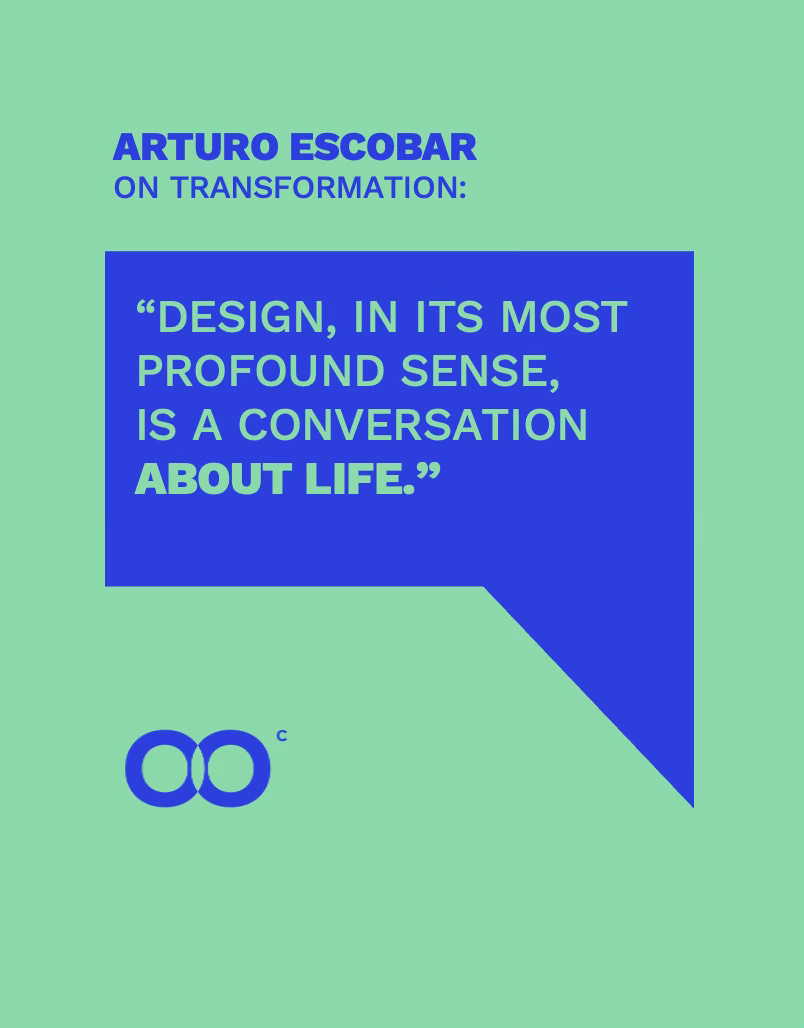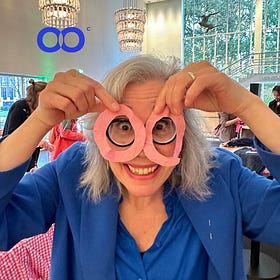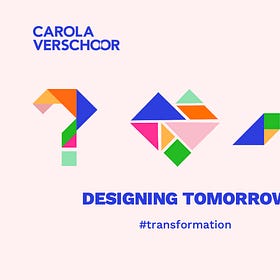(R)evolution Through Play: Breaking Rigid Frames, Bending Towards New Realities
🌍 Embracing playfulness to break free from cultural rigidity.
The art of bending, not breaking
In a world shaped by centuries of colonialism, the challenge is not only breaking oppressive systems but also bending ourselves and our societies into new forms of existence. Becoming (r)evolutionaries in this sense means recognizing the subtle difference between rigidity and playfulness—between breaking things apart and bending them toward new possibilities. Decolonization requires us to become creative in how we address problems, not just by dismantling systems (that is inevitable, sooner or later these systems are failing) but by reframing how we understand problems in the first place. It’s not about shattering, but about reimagining.
Framing the world through one cultural lens
The way we frame problems is deeply entangled with culture, and as Arturo Escobar suggests, “how we think is as important as what we think about.” The very concept of culture was invented in Europe as a way to signal what was "civilized" and not "wild"—a construct that has led us toward a universal, homogenizing view of what is valid. This cultural rigidity leaves little room for plurality, locality, or originality.
Iain McGilchrist, in The Master and His Emissary, argues that this impulse towards homogeneity has roots in the Western tendency to prioritize the left hemisphere of the brain—focused on control, analysis, and categorization—over the more expansive, relational right hemisphere. This left-hemisphere dominance has driven much of the colonial mindset, reducing the world to problems to be solved rather than mysteries to be engaged with creatively.
In framing problems from this rigid, universal perspective, we often ignore the complexities and diversity of lived experience. Our problem-solving skills, then, are limited not because we lack creativity, but because the frames within which we work are narrow and predetermined. Decolonization, therefore, involves bending these frames to allow for a more pluralistic, relational view.
The power of play: Bending the rules
If we are to break free from colonial structures, we must learn to approach challenges with a sense of play rather than rigidity. Playfulness allows us to bend the rules, to experiment, and to imagine alternatives that a rigid mindset would dismiss as unrealistic or impractical.
Nora Bateson’s concept of “warm data”—contextual, relational information that cannot be separated from the systems in which it exists—invites us to see the world through a broader lens, that encompasses all that is. It’s not enough to solve a problem; we must learn to reframe it, understanding how different systems, stories, and relationships intersect. Bateson’s ideas challenge the rigidity of cultural norms by encouraging us to dance with complexity rather than trying to control it. Her book Combining is a gem, for it does exactly that which she encourages. (if you’re thinking of presents for the holiday season, this is one I recommend!).
While it seems counterintuitive: bending is a revolutionary act. It requires us to step outside the rigid structures of thought and cultural mandates, embracing multiplicity and allowing room for more voices, more stories.
As Fritjof Capra suggests in The Systems View of Life, life itself is a network of interconnected systems, and our approach to problem-solving must reflect that complexity. We cannot force solutions through top-down, one-size-fits-all methods; instead, we must co-create solutions that are responsive to the unique needs and circumstances of each situation.
(R)evolution, problem re-framing and transformation
Transformation design is not just about solving problems—it’s about rethinking the way we see the world so that we can co-create new futures. The way we frame problems is the root cause of how we solve for symptoms instead of relationships. And it can be done differently. Take Inez Aponte’s work on regenerative economies, for example, which highlights how communities can create solutions that honour local knowledge, identity, and ecosystems, rather than imposing external standards or imposing problems from an external perspective. And it’s not just economies that need attention, it’s our communities: which is why Aponte has also started an initiative called Crazy Beautiful World together with her son, to include young people in this conversation.
As we become more inclusive of alternative economies and broaden the generational scope of transformation, decolonization becomes not just an act of dismantling but an act of becoming. To become (r)evolutionaries, we must unlearn the rigid problem-framing inherited from colonial thought and reframe our challenges in ways that allow for fluidity, playfulness, and diversity.
As Arturo Escobar reminds us, “Design, in its most profound sense, is a conversation about life.” Decolonization is a conversation that must include multiple voices, perspectives, and possibilities. Including our innermost convesations with ourselves.
Embracing pluriversality
At the heart of decolonization is the concept of pluriversality—an understanding that there is no single correct way of being in the world. The colonial project sought to impose a universal culture, one that prioritized certain values, languages, and ways of thinking over others. But as McGilchrist, Bateson, Capra, and Escobar show, life itself resists such simplification. Our task is not to impose a new, singular way of thinking, but to create space for multiple ways of knowing and being.
This pluriversal approach is essential for transformation, as it challenges us to rethink what it means to solve a problem. It moves us from rigidity to flexibility, from control to creativity, from formality to playfulness, from rules to experimentation.
Becoming benders of reality
Decolonization requires more than just breaking down old systems—it requires bending reality toward new possibilities. By embracing playfulness, creativity, and a pluralistic worldview, we can become (r)evolutionaries who create new ways of living that are responsive to the complexities of life. Twisting the plot of the story from doom and gloom to hope and possibility. In this process, we move away from rigid, universal frameworks toward a world where local knowledge, identity, and diversity are not just tolerated, but celebrated. As we bend the rules, we open the door to a future in which creativity and transformation are the norm, not the exception.
If you enjoyed this article, please leave a ‘♡’ and/or share it with others. You may also like:
Respecting Transformation: Changing Lenses, Changing Outcomes
Transformation is often depicted as a sweeping overhaul—a dramatic change that alters everything overnight. However, true transformation begins not with action, but with a shift in perception. To redesign the systems we inhabit in response to the challenges of a polycrisis—climate change, inequality, technological disruption, and geopolitical instabilit…
Designing Tomorrow -beyond the Liminal
TL;DR: Systemic collapse is everywhere, and the challenges it brings are opportunities for creativity and transformation. Embracing uncertainty and questioning assumptions can lead to collaborative solutions. Diverse perspectives are essential for navigating complexity and designing a better future. Profound transformation forms out of questioning what …







